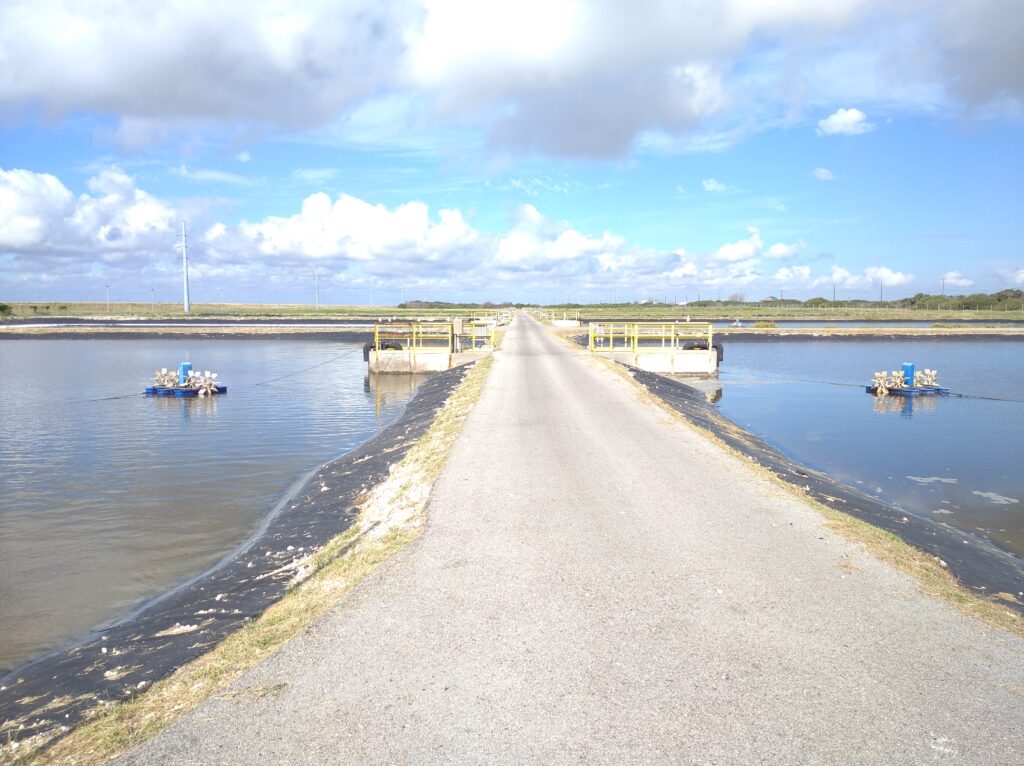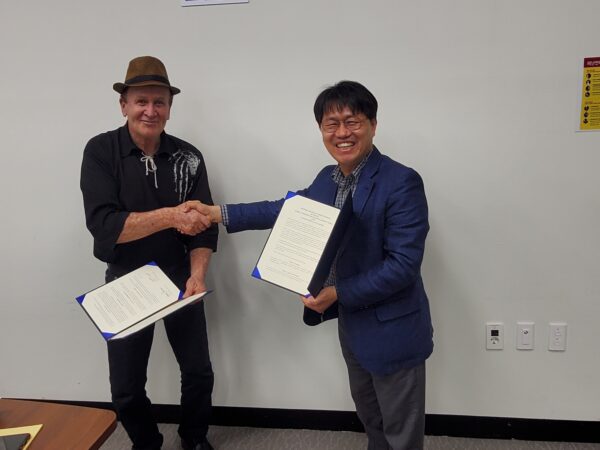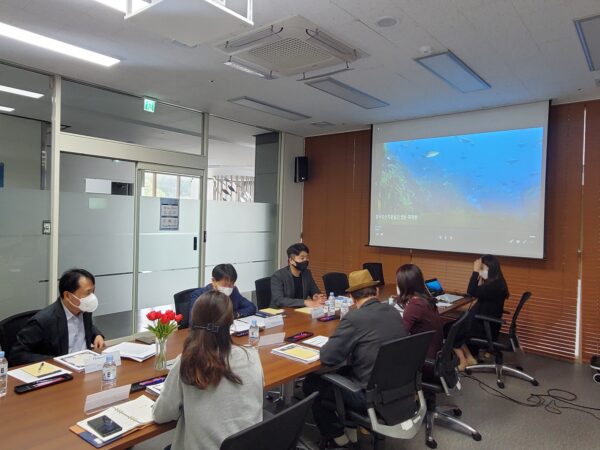
Features
Restocking
Viewpoint: My mission to restore the Mediterranean Sea
The Mediterranean Parliament hopes to restore fish populations that have declined and return the populations to the point where they can sustain regular harvests is a field of study that I promote worldwide.
August 30, 2023 By Ofer Berzak, Galidi Fish Farming Consultants
 Hatchery ponds at the CCA Marine Development Center in Texas, USA. (Photo: Ofer Berzak)
Hatchery ponds at the CCA Marine Development Center in Texas, USA. (Photo: Ofer Berzak) With 71 per cent of the earth being covered in water, those who know how to restock the right fish in the right places can help increase the world’s food yield.
Due to overfishing, nature cannot support the amounts of fish harvested as it did in the past. For example, the Mediterranean Sea is suffering from a 30 per cent decrease in its annual fish harvest due to common fishing and environmental practices:
- Overfishing;
- Fishermen are entering fish breeding grounds;
- Using inappropriate fishing nets to harvest fish;
- Pollution of coastal waters from industrial facilities byproduct discharges.
The Mediterranean Parliament supported me in promoting the critical evaluation of these concerns after I presented the idea of fish restocking at a Milano Economic Conference in 2019. As such, I formed a mariculture team as part of my company’s (Galidi Fish Farming Consultants) operations with experts from six countries – Spain, Germany, Malta, Turkey, Israel, and Egypt – to formulate a plan to restock the Mediterranean Sea with hatchery-reared fish.
Our recommendations focus on fishing protocols/regulations for Mediterranean countries and assisting with reproducing juvenile fish in hatcheries to a size of 7-10 cm for release (restocking) into the sea. The proposed Mediterranean Sea project’s objective is to increase the quantities of fish caught by 400,000 tons/year within 10-15 years. Fish stockings could assist in reaching the 1,200,000 tons/year fish harvest average of the past.
As part of our project development process, we visited ongoing restocking programs that have worked successfully for many years. I visited government-operated fish hatcheries in Texas, USA in October 2021. Waters off the Texas coast had suffered fishery harvest declines due to overfishing and bycatch issues. The state established size and catch limits and started restocking the coastal waters with hatchery-reared fish. This initiative had the support and cooperation of the fishing community. In 1985, Texas decided to replenish the stock of three fish species whose catch was particularly low. The program targeted the hatchery rearing of 25 million fingerlings/year for restocking into coastal waters.
From 1988, the fish harvest rates significantly improved regarding recreational saltwater fishing. During my visit, the project managers shared information from their years of experience and stated that the hatchery program is one of Texas’ fisheries management tools. Other tools include a long-term independent fisheries monitoring program, fishing regulations, habitat protection, fish population genetic assessments, and the cooperation of conservation-minded fishermen. These tools ensure that Texas’ fishery resources are wisely managed and that the recreational saltwater fishing industry in Texas continues to contribute prominently to the state’s economy.
We contacted the Korea Fisheries Resources Agency (FIRA), and I visited their office in May 2022. The agency deals with restocking fish to enhance the sea around the country’s peninsula. The fish harvest in the sea around the country decreased significantly between 1980-2004. FIRA provides solutions to stop the decline of fish populations in South Korea. FIRA established a Round Table Group that includes the Ministry of Fisheries, fishing experts, fisheries institutes, and fishing organizations that have worked together to provide solutions to enhance fish populations in South Korea by restocking the sea.
FIRA has taken several necessary steps to address the fishery’s decline. The agency instituted regulations such as no fishing on breeding grounds during spawning seasons. FIRA initiated the restoration of degraded aquatic habitats by planting sea forests and the construction of artificial reserves. The agency closely evaluated the timing for stockings of hatchery-reared fish and stocking locations. FIRA established long-term monitoring efforts to gauge the success of the fish restocking program.
South Korea is an excellent example of the government, fisheries scientists, and the fishing community working together to develop solutions to address declining fisheries by using fishing regulations, habitat enhancement projects, and releasing hatchery-reared juvenile fish into the sea to increase fish populations. South Korea releases some 800 million juveniles/year of 70 different fish species. From 2006-2016, the fish harvest increased by half a million tons – 50,000 tons/year on average.
Ambassador Sergio Piazzi invited me to present a practical plan that could be used to increase fish harvests in the Mediterranean Sea. The meeting was part of a United Nations Economic Conference convened in Morocco in December 2022. My presentation included discussion points about the decrease in the Mediterranean Sea fish harvest rates during the last 40 years. Some reasons for the decline, such as bycatch discard, were presented. The responsibilities of countries in maintaining fishing regulations and habitat protection were discussed. And I cited countries around the world that have successfully restocked their seas with hatchery-reared fish.
Based on the successful results of Texas, South Korea, and other worldwide restocking programs, it is clear that the technical side of fish restocking is well established. Considering this methodology for restocking the Mediterranean Sea with hatchery-reared fish is reasonable.
Galidi deals with consultancy and management of fish farms in Israel and worldwide and has some 50 years of experience. In conjunction with the Galidi mariculture team, we have the support of experts from Texas (including Dr. Robert Vega who directed the state saltwater fish hatcheries for many years) and South Korea in preparing and implementing the restocking program. We look forward to obtaining approval from governmental entities to commence restocking the Mediterranean Sea.
 Ofer Berzack is the chief executive officer of Galidi Fish Farming Consultants. Since 1971, he has been involved in all areas of fish-culture – fingerling production and raising, feeding, fattening, coordinating equipment for fish transport, and processing and marketing of fish. Galidi specializes in locating potential natural sites for fish farming in consideration of the environmental conditions and the requirements of the local markets.
Ofer Berzack is the chief executive officer of Galidi Fish Farming Consultants. Since 1971, he has been involved in all areas of fish-culture – fingerling production and raising, feeding, fattening, coordinating equipment for fish transport, and processing and marketing of fish. Galidi specializes in locating potential natural sites for fish farming in consideration of the environmental conditions and the requirements of the local markets.
Print this page
Advertisement
- Ace Aquatec transforms operations for Australian Murray Cod producer
- Scottish Sea Farms to open new $2.5M incubation unit at Barcaldine hatchery







